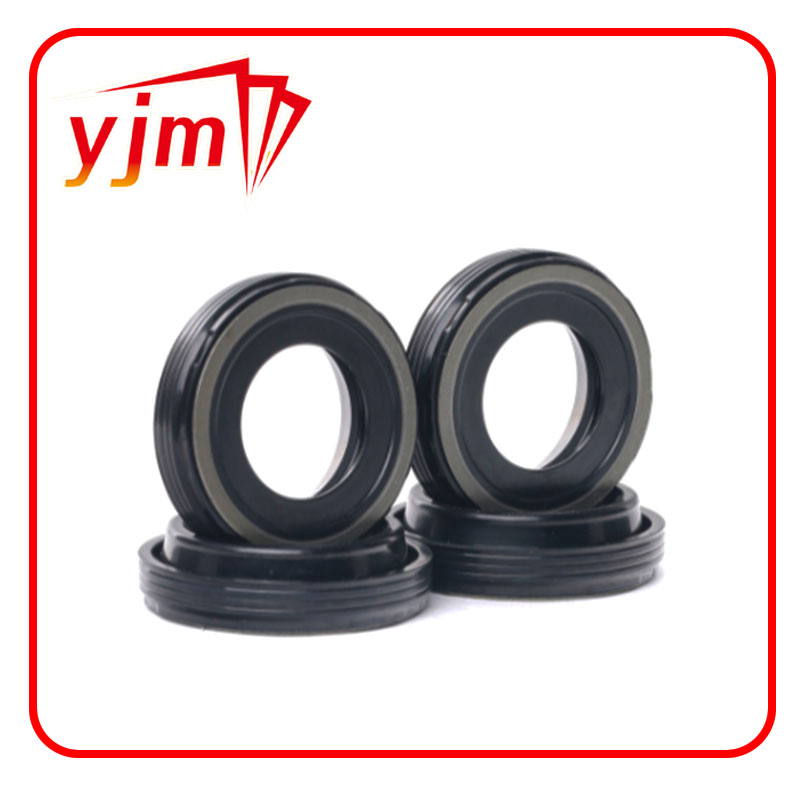Understanding Car Engine Oil Seals and Their Importance for Vehicle Performance
Understanding the Importance of Engine Oil Seals
Engine oil seals play a crucial role in the overall performance and longevity of an automobile's engine. These seemingly simple components are vital for maintaining the integrity of the engine's lubrication system, preventing leaks, and ensuring that the engine operates efficiently. This article delves into the purpose, types, common issues, and maintenance of engine oil seals.
What Are Engine Oil Seals?
Engine oil seals, also known as oil seals or crankshaft seals, are designed to prevent engine oil from leaking out of the engine while also keeping dirt and contaminants from entering. They perform this essential function by creating a tight seal around rotating components, such as the crankshaft and camshaft. Oil seals are typically made of rubber or synthetic materials, which allow them to withstand high temperatures and pressures associated with engine operation.
Importance of Engine Oil Seals
The primary purpose of engine oil seals is to retain oil within the engine. Proper lubrication is essential for reducing friction and wear on moving engine parts. When oil leaks occur, it can lead to a range of problems
1. Lubrication Failure Insufficient oil levels due to leakage can result in inadequate lubrication, leading to increased friction. This can accelerate wear and tear on engine components and lead to costly repairs.
2. Overheating Oil helps in cooling the engine. When there is a leak, the engine may overheat due to less efficient cooling, potentially leading to catastrophic engine failure.
3. Contaminant Ingress Damaged or worn oil seals can allow dirt, dust, and other contaminants to enter the engine. This can cause significant damage to the internal components, leading to premature engine wear.
4. Environmental Impact Oil leaks not only pose a risk to the engine but also have environmental implications. Oil spills can contaminate soil and water, posing a risk to ecosystems.
Types of Engine Oil Seals
There are various types of engine oil seals, each designed for specific applications within the engine
- Crankshaft Seals Located at the front and rear of the crankshaft, these seals prevent oil from leaking out of the engine block. They are critical in maintaining oil pressure within the engine.
- Camshaft Seals These seals prevent oil from leaking where the camshaft exits the engine. Like crankshaft seals, they are vital for maintaining proper oil distribution within the engine.
car engine oil seal

- Timing Cover Seals Positioned at the front of the engine, timing cover seals help to seal the timing cover to the engine block and prevent oil leaks
.- Transmission Seals Although not directly part of the engine, seals in the transmission system can also impact overall vehicle performance by preventing fluid leaks and maintaining hydraulic pressure.
Common Issues with Engine Oil Seals
Over time, engine oil seals can wear out due to various factors, including heat, friction, chemical exposure, and age. Common signs of a failing oil seal include
- Oil Leaks Puddles or wet spots beneath your vehicle can indicate a leaking oil seal.
- Oil Pressure Light A lit oil pressure warning light on the dashboard may suggest low oil levels due to leakage.
- Increased Oil Consumption If you find yourself frequently topping off your engine oil, this could point to a leak caused by a failed oil seal.
Maintenance and Replacement
Regular vehicle maintenance can help extend the lifespan of engine oil seals. Here are some tips
- Routine Inspections Regularly check for signs of oil leaks and monitor your oil levels. Early detection of a leak can prevent more significant issues.
- Change Engine Oil Regularly Using the right grade of engine oil and changing it according to manufacturer recommendations can help extend the life of the seals.
- Replacement If you notice that an oil seal has begun to leak, it’s crucial to replace it promptly. While it may seem like a minor issue, ignoring a leaking oil seal can lead to more severe engine problems.
Conclusion
Engine oil seals are essential components that ensure the proper functioning of an automobile's engine. By preventing oil leaks and protecting against contaminants, they help maintain engine health and performance. Regular maintenance and timely replacement of worn seals can contribute significantly to the longevity of your vehicle and prevent costly repairs down the line. Understanding the role of oil seals in your engine’s health is key to responsible vehicle ownership and maintenance.
-
Simplifying Oil Changes: A Comprehensive Guide to Oil Drain Plugs and Their Variants
News Aug.04,2025
-
Mastering Oil Drain Maintenance: Solutions for Stripped, Worn, and Upgraded Oil Plugs
News Aug.04,2025
-
Fixing Oil Pan Plug Issues: Leaks, Stripped Nuts, and the Right Replacement Solutions
News Aug.04,2025
-
Everything You Need to Know About Oil Drain Plugs: Sizes, Fixes, and Upgrades
News Aug.04,2025
-
Choosing the Right Oil Drain Plug: A Guide to Sizes, Materials, and Drain Innovations
News Aug.04,2025
-
A Complete Guide to Automotive Drain Plugs: Types, Problems, and Innovative Solutions
News Aug.04,2025
-
The Ultimate Guide to Car Repair Kits: Tools and Essentials Every Driver Should Own
News Aug.01,2025
Products categories















